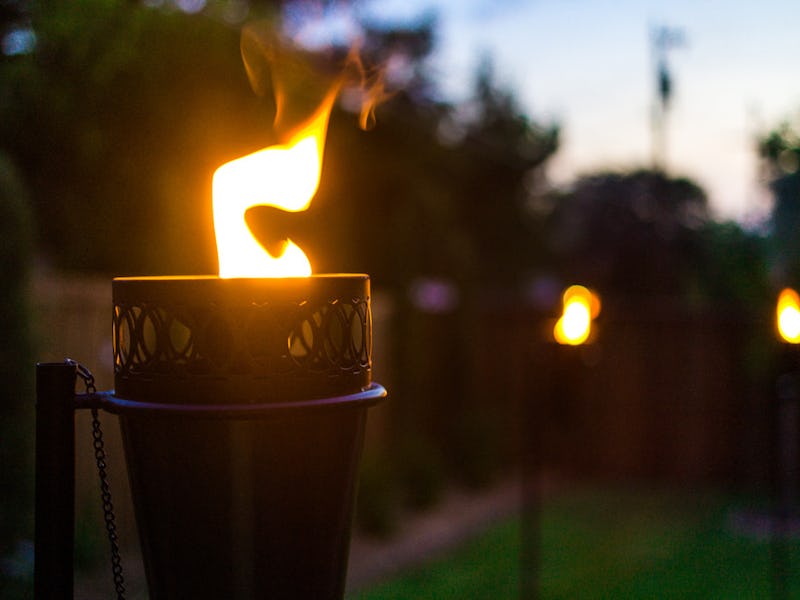Citronella Candles Are Bullshit
Unless you like wasting money on things that don't work.

A good summer party host always places a ring of citronella candles and torches around the area where guests will be gathering. This sets a nice mood and lets your friends know that you are willing to spend a great deal of money to provide almost no protection against the swarm of mosquitoes that will inevitably descend as evening falls.
It’s true that mosquitoes don’t like citronella, which is essential oil from the lemongrass plant. Many plants produce natural insecticides to deter bugs that might like to eat them. And burning citronella will put some of that essence up into the air with the candle’s smoke.
But unless you can somehow surround yourself in the citronella smoke and hold it there, it won’t help you much. “If the mosquitoes encounter it, it is repulsive to them, but they just go around it and come to you from the other side,” Jonathan Day, a mosquito researcher at the University of Florida, tells Inverse. “The torches and candles might have a nice ambiance to them, but they don’t work in terms of keeping bugs away.”
One study found that people with a citronella candle burning right next to them received an average of six bites instead of 10 over an 80-minute period, but a regular candle offered about the same level of protection.
Another study found just a 29 percent rate of repellency for citronella — and that was in an indoor environment.
Insect repellants, with few exceptions, work only on contact. One of the reasons people hate DEET so much is that, in addition to being generally unpleasant, it doesn’t seem to work. You can drench yourself in the stuff and still get swarmed.
But you won’t get bitten. The mosquitoes might try landing once or twice, but then they’ll give up and be on their merry way, says Day.
That’s why, in terms of the prevention of infectious disease, the application of DEET or another repellent chemical remains the gold standard. But in terms a fun backyard party, the available consumer solutions tend to disappoint.
There are some chemical insecticides that are proven to work when diffused into a space, so long as the wind is relatively still, Day says. “Under the right sort of circumstances, they might be effective in controlling mosquitoes in a very small, semi-enclosed area.”
But really, does continuously breathing a poison rather than applying it once to the skin sound like anyone’s idea of a good time?
Day’s prescription for summer fun, beyond using topical repellents, is to use fans as required to send a breeze through the party space. Mosquitoes can’t fly well with even a small amount of wind, and a fan or two could dissipate the swarm dramatically. That’s great news, since the only thing worse than sharing a backyard with thousands of mosquitoes is surrendering the battle and retreating inside.